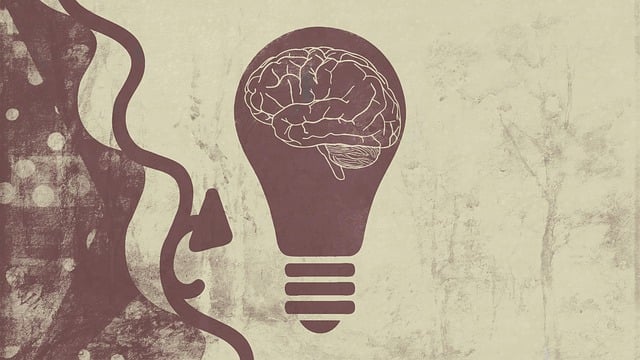Bipolar disorder management revolves around understanding the condition through mental health counseling, which provides insights and coping strategies for mood stabilization. Therapies like CBT and IPSRT, along with family-focused therapy and psychoeducation, are integral to treatment. Local settings offer personalized care tailored to cultural backgrounds and personal preferences. Effective preparation for initial meetings includes reflecting on experiences and setting goals. A robust support system comprising close family, friends, community resources, and mental health professionals is vital for long-term success in managing bipolar disorder.
“Navigating bipolar disorder requires a multifaceted approach, and local therapy plays a pivotal role in managing this complex condition. This comprehensive guide explores various aspects of treating bipolar disorder close to home. From understanding its impact on daily life to uncovering the benefits of personalized care in local settings, we delve into effective therapy approaches, including mental health counseling techniques.
Additionally, we provide practical steps for preparing for your first session and emphasize the importance of building a robust support system involving family, friends, and community resources.”
Understanding Bipolar Disorder and Its Impact on Daily Life

Bipolar disorder is a complex mental health condition characterized by extreme mood swings, ranging from intense mania to deep depression. This psychological disorder significantly impacts an individual’s daily functioning and overall quality of life. During manic episodes, people may experience elevated mood, increased energy, and impulsive behaviors, while depressive episodes bring feelings of sadness, hopelessness, and fatigue. The fluctuations between these extremes can be unpredictable and disruptive, affecting relationships, work or school performance, and general productivity.
Understanding bipolar disorder is the first step towards managing it effectively. Mental health counseling plays a pivotal role in helping individuals navigate this journey. Through therapy sessions, patients can gain insights into their condition, learn coping strategies to stabilize moods, and develop effective communication skills to manage relationships during ups and downs. Counseling provides a safe space for expressing emotions, exploring triggers, and building resilience, ultimately enhancing the individual’s ability to lead a fulfilling life despite the challenges posed by bipolar disorder.
The Role of Mental Health Counseling in Managing Bipolar Disorder

Mental health counseling plays a pivotal role in managing bipolar disorder, offering individuals a safe and supportive space to navigate their emotional landscapes. Through one-on-one sessions with a qualified counselor, patients can gain invaluable insights into their condition, learn coping strategies, and develop skills to recognize early warning signs of mood episodes. Counseling provides a personalized approach, addressing unique challenges faced by each individual with bipolar disorder.
Counselors employ various evidence-based techniques tailored to the specific needs of their clients. Cognitive-behavioral therapy (CBT), for instance, helps patients identify negative thought patterns and replace them with healthier alternatives. Family-focused therapy involves educating loved ones about bipolar disorder, fostering better understanding and support systems. The ultimate goal is to empower individuals to take an active role in managing their mental health effectively.
Different Types of Therapy Approaches for Bipolar Disorder

Bipolar disorder treatment often involves a combination of different therapy approaches tailored to the individual’s unique needs. One common and effective method is mental health counseling, which can take various forms, such as cognitive-behavioral therapy (CBT) and interpersonal and social rhythm therapy (IPSRT). CBT helps individuals identify and change negative thought patterns and behaviors associated with bipolar episodes, while IPSRT focuses on stabilizing daily routines and improving relationships.
Additionally, family-focused therapy and psychoeducation play significant roles in managing bipolar disorder. Family-focused therapy involves loved ones to better understand the condition and learn coping strategies. Psychoeducation equips individuals and their families with knowledge about bipolar disorder, treatment options, and self-management techniques, fostering a proactive approach to mental health care.
Benefits of Local Therapy Settings for Personalized Care

Local therapy settings offer a unique advantage in the field of bipolar disorder treatment by facilitating personalized care. Unlike traditional clinical environments, these settings allow for a more tailored approach, considering an individual’s specific cultural background, lifestyle, and personal preferences. This aspect is particularly crucial in mental health counseling, where addressing complex emotional issues requires sensitivity and understanding. By involving familiar surroundings, local therapy sessions create a sense of comfort, encouraging individuals to openly discuss their struggles and engage more actively in their treatment.
Moreover, the community-based nature of these settings enables therapists to integrate various support systems into the care process. This could include family members, friends, or local support groups, fostering a collaborative environment that enhances recovery. Personalized mental health counseling within local contexts has been shown to improve patient adherence to treatment plans and promote better long-term outcomes for individuals managing bipolar disorder.
Preparing for Your First Session: What to Expect and How to Prepare

Preparing for your first session with a mental health counselor is an important step in managing bipolar disorder. It’s natural to feel some anxiety or uncertainty, but being prepared can help ease any nerves. Before your appointment, take time to reflect on your experiences and symptoms. Consider what triggers your mood episodes and what strategies you’ve found helpful in managing them. You can also write down specific goals you’d like to achieve through therapy. This introspection will enable you to actively participate in the session and make the most of it.
On the day of your appointment, ensure you have a quiet space where you feel comfortable discussing personal matters. Bring along any relevant medical records or notes about your condition, including medications and previous treatments. It’s beneficial to arrive early to avoid rushing or feeling stressed. During the session, be open and honest with your counselor; they’re there to support and guide you. Don’t hesitate to ask questions or clarify anything that’s not clear. The first session is often an introductory one, where you’ll have a chance to build a rapport and set the tone for future therapy sessions.
Building a Support System: Family, Friends, and Community Resources

Building a strong support system is integral to managing bipolar disorder effectively, and this often starts with close connections to family and friends. These relationships can provide emotional comfort, practical assistance, and a listening ear during challenging times. Mental health counseling can facilitate these connections by teaching individuals coping strategies and communication techniques to strengthen their bonds. Friends and family members can learn how to recognize early warning signs of a mood episode and offer much-needed support.
Community resources play a significant role in complementing individual efforts. Local support groups provide safe spaces for individuals with bipolar disorder to share experiences, gain insights, and foster new friendships. These groups often connect people to valuable services such as crisis intervention centers, peer mentoring programs, and educational workshops focused on mental health awareness. By leveraging these community resources, individuals can create a comprehensive support network that empowers them in their journey towards managing bipolar disorder effectively.
